Home Buyers Guide
Last Updated: February 24, 2021
Our Home Buyers Guide 2021 will assist you in your home buying process from beginning to end. Find the answers to all your questions.
Buying a Home: Is It Right for Everyone?
Buying a home is one of the biggest purchases you will ever make. It’s part of the American dream and a ritual of becoming a “real” adult. With so many expectations, it’s easy to see that the act of purchasing a home is not just a financial decision. The emotions of buying a home can obscure whether it’s the right thing to do for yourself. You should consider these three factors before making your decision.
Table of Contents
- Buying a Home: Is It Right for Everyone?
- What Is the True Cost of Home Ownership?
- True Cost of Owning Home Calculator
- Download Guide
- What Is the True Cost of Renting a Home?
- Buying vs. Renting a Home
- Understanding Different Types of Mortgage
- Home Buyers Guide: Mortgage Calculators
- Home Buyers Guide: Mortgage Questions and Answers
#1 Effect on Your Savings Rate
For most of us, a home purchase will be the largest purchase we’ll ever make. It will affect a significant portion of our income, and a mortgage along with maintenance will be one of our most significant monthly expenses. Buying a home means that the money spent on your home will be unavailable for building your savings.
#2 Will Owning a Home Make You Happy?
Other people’s demands should not determine your decision to purchase a home. Some people might be happier enjoying the flexibility of renting and having a larger savings account. Home should be what makes you comfortable. Buying a home can offer more privacy and customization of your living space. It also means maintenance repairs and possibly dealing with a Home Owners’ Association (HOA). That is why if you decided to buy a home, make sure you do it for yourself.
#3 Your Home Is Not Always an Investment and Can Be a Liability
Despite the common belief, buying a home is not always an investment. It is difficult to make money on the home you live in. Investment properties that you rent out and provide cash flow is a different story.
Appreciation is dependent on the housing market of the location of your home. You must sell your home to realize any financial gain. You will also need to move to a cheaper area to benefit from financial gain. Plus, selling your home is not as easy as selling a stock. It will take some time and realtor commissions in a lot of cases.
When you own a home, you also must factor in homeownership costs to carry your “investment.” These go beyond the mortgage and considers property taxes and repairs. Your home value may appreciate, but the other costs add up too.
Approach Buying a Home with a Clear Mind
Whether you purchase a home or make alternative arrangements, you should do so with full understanding and a clear head. Calculate the real cost of home ownership to ensure you know how it will affect your current and future finances. Then you can answer the question, “Should I buy a home?”.
What Is the True Cost of Home Ownership?
While planning to buy a home, you should understand all the costs associated with home ownership. There is the price paid for the home, interest costs (if taking a mortgage), and various other fees to consider.
Use this handy calculator to find out the real cost of home ownership.
True Cost of Owning Home Calculator
Purchase Information
Advanced Fields:
Closing Costs
Ongoing Expenses
Optional: Repairs and Improvements Needed
Results
| Payment Per Period: | |
| Mortgage Payment (total per Month): | |
| Total Expenses per Month: | |
| Total Montly Payments: | |
| After Tax Monthly Income Needed: |
Cash Needed
| Down Payment: | |
| Closing Costs: | |
| Repairs Improvements Needed: | |
| Suggested Repair Fund: | |
| Total Cash Needed on Hand: |
How to Use Our True Cost Owning Home Calculator
- Enter the maximum percentage of your income you can use on housing expenses.
- Input the purchase information in the appropriate boxes.
- If the property has condo or HOA fees, select Yes; otherwise, select No.
- Select your Mortgage Compound Period and Mortgage Payment Frequency.
- The closing cost populates with average closing costs for each category by default. You may use these, or you can enter more accurate values if you have them.
- Enter the value for ongoing expenses. Property Tax, Home Insurance and Utilities estimates may be provided in the home listing.
- You may choose to fill out the optional section. Hover over the purple circle next to each category name to see the average expected cost for that category.
True Cost of Home Ownership Terms and Definitions
- After Tax Monthly Income Needed. The after-tax income you require so that your actual housing expenses equal Maximum Housing Expense % of your income.
- Closing Costs. Fees paid when finalizing a home purchase, paid by either the buyer or the seller.
- Down Payment. Money paid at closing to initialize a mortgage loan. Down Payment + Mortgage = Purchase Price.
- Interest Rate. What your lender charges for using their credit, as a percentage.
- HOA (Home Owner’s Association) Fee. A periodic payment made to the organization of homeowners where the property is located that covers shared amenities and services. These include garbage collection, snow removal, and landscaping.
- Home Price. The selling price of the property.
- Maximum Housing Expense % of Your Income. The maximum amount of money dedicated to your mortgage and other home expenses divided by your income, as a percentage.
- Mortgage Payment. The total monthly payment, which is the sum of the principal and mortgage interest.
- Mortgage Payment Frequency. The regularity with which you pay towards your mortgage. The table below summarizes the different frequencies.
| Mortgage Payment Frequency | Payment Terms | Payment Due | # of Payments per Year | Equivalent “Extra” Payments |
|---|---|---|---|---|
| Monthly | Monthly mortgage, once per month | Same date every month | 12 | 0 |
| Semi-Monthly | Payment is half of mortgage expense and is sent to lender twice per month | Usually 1st and 15th day | 24 | 0 |
| Bi-Weekly | Monthly mortgage is multiplied by 12 to convert to annual cost, then split into 26 equal payments | Every two weeks | 26 | 0 |
| Bi-Weekly Accelerated | Payment is half of the monthly mortgage cost | Every two weeks | 26 | 2 |
| Weekly | Monthly mortgage is multiplied by 12 to convert to annual cost, then split into 52 equal payments | Every week | 52 | 0 |
| Weekly Accelerated | Payment is a quarter of the monthly mortgage cost | Every week | 52 | 4 |
- Payment per Period. The amount you will pay over a given period of time. You can make multiple payments towards your monthly mortgage expense. The more often you pay per month the less mortgage interest you will incur. For example, weekly accelerated deposits can save you tens of thousands of dollars in interest over the life of the mortgage.
- Property Tax. A government tax based on the assessed value of your property.
- Total Expenses per Month. The sum of your monthly expenses for owning your home.
- Total Monthly Payments. Monthly Mortgage plus Total Expenses per month.
Understanding True Cost Owning Home Calculator Results
Let’s say you are looking at a $250,000 home. You have a 20% down payment ($50,000) from your grandparents. A maximum of 35% of your income can go to housing expenses. You qualified for a 4.999% interest rate as part of a 30-year mortgage (compounded monthly). Payments will be sent once a week to match how often you receive your salary. The property does not have an HOA fee. You decided to leave the default closing costs as they are. Based on the home listing, your property tax is $2500 per year, and home insurance is $975. Your utility costs average about $400/month, and you pay $60/month for the internet.
The left side is your monthly costs, and the right side is a breakdown of cash needed at closing. Each week you would pay $247.34. Your monthly payments are Mortgage Payment ($1071.81) + Total Expenses ($749.58), which equal $1821.39. You’ll need $5203.97 for your housing expenses to equal 35% of your after-tax monthly income. In total, you will need $62,000 in available cash to cover your down payment, closing costs, and suggested repair fund.
Remember, these results are estimates. While we try to make the calculator as accurate as possible, we do not guarantee you will get these values when you’re closing. When using it, remember that entering accurate information improves the estimate.
Navigate the Costs of Owning a Home Easily
When you know the true cost of owning a home you can begin getting your home purchasing finances in order. You can use these estimates to navigate the complex costs of owning a home. Depending on the realtor and the closing company you use, the closing costs may vary.
You can also try using this calculator which tells you how much house you can afford. This tool may be helpful when deciding to purchase a home. It generates a more accurate estimate of the finances for your future homeownership.
What Is the True Cost of Renting a Home?
The cost of renting a home isn’t only the monthly payments to your landlord. Before you move in, there are several fees that you may have to pay. It’s better to understand the rental costs of owning a home to avoid any surprises on your leasing bill.
Move-in Costs
Before your landlord hands over the keys to your new home, you may need to pay some one-time charges.
- Application fee. Your landlord may run a credit check to be sure that you are a good (tenant) risk. The application fee covers the cost of credit screening. Landlords assume that your past behavior is a good indicator of your future as a tenant. Having good credit tells them that you’re likely to pay your rent on time and in full. Bad credit history will give them concern. Some landlords may waive a credit check (and application fee) for other evidence that strongly indicates you can pay the rent. They may ask for your pay stub or a job verification letter, for example.
- Security deposit. This is collateral in case you damage the home or break your lease early. If neither of these situations applies, the landlord must return your security deposit to you when you end your lease.
- First month’s rent. Landlords usually collect the rent for the upcoming month by the first of the said month. You must pay this fee before moving in, or else your landlord can choose not to give you the keys.
- Last month’s rent. Some landlords collect this fee in advance. Read the lease carefully to know if it is the final month’s rent or an additional security deposit.
- Pet fee. This is an additional fee paid to cover remediation from pet damage.
- Move-in fee. Your landlord may charge this to cover costs associated with updating personalized features for you as a new tenant. These may include costs for updating mailboxes and directories, changing locks, or reprogramming codes for individual access to shared amenities.
Recurring Costs of Renting a Home
Once you move into the home, the costs change from one-time to recurring. They are usually due around the same day of every month. It’s easy to set a reminder on your calendar to pay them.
- Utilities. Utilities like electricity, cable, and internet must be paid monthly. Your water, gas, sewage, and trash bills are utilities as well. Depending on your lease, you could be responsible for none, some, or all of your utilities.
- Renters insurance. Many landlords, especially commercial properties, require tenants to carry a minimum amount of renter’s insurance. Rental insurance may be very affordable, depending on your situation.
- Parking fee. In places where parking is difficult (and thus expensive), landlords may charge a premium for parking spots.
- Maintenance fees. Depending on the language in your lease, you could be responsible for regular maintenance to the home. These include snow removal and mowing the lawn mowing.
- Appliance rental. Some commercial landlords offer washing machines and dryers as add-ons to your lease for a fee.
- Possible rent increases. At the end of your lease, your landlord may choose to raise the price of your rental. As a month-to-month tenant, this may be done with as little as 30 days’ notice.
Knowing what to expect for your rental costs means that you can be proactive in managing your financial situation. The cost of renting a home can balloon very quickly due to your rental cost. Being aware of them can help you proactively manage your short-term and long-term personal finances.
Buying vs. Renting a Home
The decision to buy or rent a home is not one to be taken lightly. It will affect your lifestyle and your savings. A home is one of the largest purchases most of us will make in our lifetime. It’s no wonder that the conversation around buying vs. renting a home ignites a passionate debate. Does it make more sense to purchase a home or should you rent one? Both choices have valid points, so there is no “right” answer. If you’re weighing your options of owning versus renting, consider the following factors before you sign on the dotted line.
Rental Costs vs. Buying Costs
Let’s say you have your eye on a home and you can either buy it or rent it.
When you look at all the costs associated with buying and renting a home (described above), you’ll see that owning a home carries significantly larger cash outflows than renting. There are several one-time homeownership costs (some of which do not build equity) and monthly expenses.
The decision boils down to the following question. Do you want to pay less per month for housing, or more in costs but have equity in your home?
Opportunity Cost: You Can Invest the Difference
Some people will tell you that with renting you are simply throwing away the money instead of building equity. This is not correct as you can invest the difference between rental costs and home ownership costs and reap the rewards of compound interest.
If you decide to buy a home, you lose the opportunity cost of investing more money into your retirement account where you can take advantage of compound interest and TVM. (Opportunity cost is the cost of the options you didn’t take when you choose to do something else).
It is also very hard to make money on the home you are living in unless you sell it and move to a different location.
Flexibility vs. Stability
Whether you value flexibility or stability will help determine which home situation may be more appropriate for you. From this viewpoint, home ownership is less of a financial decision and more emotional.
Owning a home brings more stability. In most normal situations, you can’t be forced out of the home by a third party (mortgages and some Home Owners’ Associations aside). This is your space to modify and utilize as you like, subject to local laws. For example, some landlords prohibit renters from subletting their homes. Some renters are not allowed to have long-term or short-term boarders. When you own your home, you can have as many roommates and Airbnb guests as your local laws allow.
You may not feel like you’re ready to settle down into one space. If you value the ability to move to a new location quickly, renting may be preferred. You do lose the ability to modify your home. Many landlords prohibit modifications that are expensive to remediate the home for their next tenant. The financial benefits and freedom to move as you please may be tempting to many people. You can move for a job, for a new romance, or simply because you want to with no rental consequences.
Rent vs. Buy Home Calculations
Download the PDF version of the calculations from the video for your convenience and information:
Make a Wise Decision
Whether you choose to buy or rent your home is not only a fiscal question but also one with emotional roots. You need to consider your level of comfort with each option and how both choices fit into your life’s plans. There are no right answers, only the right answer for YOU.
Understanding Different Types of Mortgage
Congratulations, you’ve finally decided to purchase a home of your own! For most of us, the next step in this process is to select a mortgage. This can be a confusing task because there are many types of mortgage to choose from. Also, mortgages have varying characteristics, like the interest rate and loan length. So how can you begin to select the best mortgage? We’ve created the following guide with all the options available to assist you in making an informed decision.
Fixed-Rate Mortgage
When choosing a mortgage, there are a few exceedingly essential factors, like your interest rate. This is usually one of the first mortgage criteria to be settled.
The most popular choice is the fixed-rate mortgage. Fixed rate mortgages may come in 15-, 20-, or 30-year terms.
- With a 15-year mortgage, you get the lowest interest rate, but the highest monthly payments of the three. If you can manage the cost, this option allows you to pay off your home the fastest.
- A 20-year mortgage is a middle option. Your interest rate and monthly mortgage expense fall somewhere between the 15- and 30-year option.
- The 30-year mortgage grants the most affordable choice for payments. This option may be the least expensive monthly cost but may have the highest interest rate. Some homebuyers choose to leverage the long payback period in exchange for purchasing a more expensive place to live.
Advantages
- Fixed-rate mortgages keep the same interest and monthly payments for the life of the loan.
- The constancy of a fixed-rate mortgage means that it’s easier to plan your budget.
Disadvantages
- The interest rates on this type of mortgage are higher than on other types, like the adjustable-rate version.
- It is one of the slowest options for building equity in your home. In a fixed-rate mortgage, the bulk of your monthly payment may initially go towards paying off interest. With time, the interest proportion of your monthly payment will decrease. The equity in your home will increase as a result.
Choose a fixed-rate mortgage if you plan to stay in the home for 7-10 years. The monthly payments offer stability to your finances.
Adjustable-Rate Mortgage
With an adjustable-rate mortgage (ARM), the interest rate will change during the term of the loan. How the interest is adjusted depends on which subset of ARM you selected.
- Variable-rate mortgages use an adjusting rate schedule for the duration of the mortgage. This schedule can be changed as frequently as twice a year, annually, or less. The good news is that these types of mortgages often cap the maximum interest that can be applied.
- Hybrid ARMs initially start with a fixed interest rate, followed by a period where the interest rate floats. Typical ratios are 3/1 and 5/1, where 3 and 5 are the number of years of fixed interest. The number 1 is the floating interest year. In a 3/1 mortgage, the first three years are at a fixed rate. During year 4, the interest rate will be different.
- Option ARMs are often used for large loans. Usually, a borrower applies for an option ARM for a loan larger than one for which he would normally qualify. This mortgage type gives borrowers one of four initial monthly payment options
- A fixed minimum payment;
- Interest-only payments;
- An amortizing payment over 15 years; or
- Another amortizing payment option over 30 years.
Advantages
- ARMs tend to have a low fixed rate in the first few years. This can help save you some money upfront with interest payments.
Disadvantages
- When the interest rates rise, the monthly mortgage payment can become unsustainable. Should this happen, it is easier for the borrower to default on their loan.
- If home values fall, it will be difficult to refinance your mortgage. You may also experience difficulty selling your home before the loan reset period occurs.
Choose an ARM if you plan to leave home before the floating interest rate occurs. Doing so may save you a lot of money in interest. To select an ARM responsibly, you must be at ease with a certain amount of risk before applying.
Conventional Mortgage
The biggest thing to remember about a conventional mortgage is that it is not insured by the federal government. This means that if the borrower defaults on the mortgage loan, the government does not protect the lender from loss.
Conventional mortgages can either be conforming or non-conforming.
- Conforming mortgages are less than, or equal to, the maximum allowable amount set by Fannie Mae or Freddie Mac. Both Fannie Mae and Freddie Mac are government-controlled agencies that trade mortgage-backed securities (MBS) between lenders and Wall Street investors. Conforming loans generally have lower interest rates than non-conforming ones.
- Non-conforming mortgages don’t fall within the limitations of Freddie Mac and Fannie Mae. A common type is a jumbo loan, which generally exceeds the loan limits of the government agencies. Jumbo loans allow borrowers to purchase more expensive homes. However, to qualify, you need both excellent credit and a sizeable down payment. You must also be able to manage interest rates that are higher than those for conforming loans.
Advantages
- A conventional mortgage usually has low borrowing costs (even with slightly higher interest rates) compared to other mortgages.
- Mortgages backed by Freddie Mac or Fannie Mae may qualify for lower down payments. A borrower can pay as little as 3% of the purchase price.
Disadvantages
- You need strong credit: a conventional mortgage requires a minimum FICO credit score of 620.
- Your debt-to-income ratio should be 45-50%.
- A down payment of less than 20% will result in a mortgage where you must get Private Mortgage Insurance (PMI).
Government-Insured Mortgage
The U.S. Government does not offer mortgages. However, it does play a critical role in helping increase the number of American homeowners. Three federal government agencies insure mortgage loans.
- The Federal Housing Administration (FHA loans) programs allow homeowners with less-than-perfect finances to qualify for homeownership. You don’t need excellent credit or a large down payment. Eligibility starts with just 3.5% of the purchase price as a down payment. The major disadvantage is a mortgage insurance premium (MIP, similar to PMI) will apply for the length of the loan. MIP payments can be shortened if you start with a 10% down payment. (It is still required for the first 11 years of the loan.) For every $100,000 borrowed, a MIP costs an extra $100 per month.
- The U.S. Department of Agriculture (USDA loan) offers loans through the Rural Housing Service (RHS). To qualify, you must live in a rural area and show financial need due to low or modest income. USDA/RHS borrowers can purchase a house with 0% down payment and below-market interest rates. Once you sign the contract, you can’t change the terms. As a borrower, you are not allowed to refinance your loan for a better interest rate. You are penalized with horrific prepayment penalties. If a USDA/RHS loan is the only way you qualify for a mortgage, you may want to take pause. It may be best to evaluate if you can afford a home right now.
- The U.S. Department of Veteran Affairs (VA loans) is a special program for active-duty military, veterans, and their families. The loans are designed to be flexible with low interest. Those who qualify can avoid mortgage insurance and enjoy virtually zero down payment. Applicants should still be careful that they do not end up underwater on the loan. (This is where the market value of the home is less than what you owe on the principal). VA loan applicants should also be aware of the funding fee, which could range between 1.25-3.3%. Funding fees are dependent on your down payment, military status, and if you are a first-time borrower on a VA loan. For a $200,000 mortgage, a funding fee will be between $2,500 and $6,600.
The general advantages of a government-insured loan are that
- It provides much-appreciated assistance for borrowers who do not qualify for a conventional loan.
- You don’t need a large down payment to purchase a home.
As for disadvantages,
- You may be required to pay some sort of mortgage insurance premium, which is difficult to remove.
- Borrowing costs may be higher than traditional loans.
Consider getting a government-insured loan if the following two-part scenario applies to you. You are a borrower with little savings, and your poor credit will prevent you from getting a conventional loan.
Interest-Only Mortgage
With interest-only mortgages, borrowers initially pay only the interest on the loan. After a given period, they pay off the principal. This provides significant cost savings up front. (Some interest-only options require the principal to be paid as a lump sum.) The monthly “principal” payments are higher than a fixed-rate payment of the same loan amount. This is to ensure the loan is paid off on-time. As a result, interest-only mortgages tend to be more expensive in the long-term.
For borrowers who need to keep initial monthly payments low, this may be a reasonable option. If you do want an interest-only mortgage, you should be aware that the risk of default is high. You should also ensure your future cash flow will be large enough to manage the higher payments on the back-end.
Balloon Mortgage
This is a special type of interest-only mortgage; it’s usually short-term (approximately 10 years). Balloon mortgages consist of a very low payment for most of the term. At the end of the mortgage, the payment “balloons” due to the full balance becoming due. Because balloon mortgages depend on a lump-sum payment instead of a steady cash flow, they can be considered high-risk. They are more commonly used in the construction industry for short-term financing without collateral. Balloon loans are often unsecured and have higher interest rates compared to other types of mortgage.
Combination Mortgage
If you’re looking to avoid Private Mortgage Insurance (PMI) but can’t afford a 20% down payment, consider a combination mortgage. It involves taking out two loans at 80% and 20% of the value of the home. The interest rate of the 80% loan is lower than the other loan, and fixed. The other loan may be a higher rate, a variable rate, or both.
Juggling the interest on two loans can be expensive. However, there may be a benefit to paying off the (more expensive) 20% loan first. You may lower your monthly costs and avoid the additional fee from PMI.
Reverse Mortgage
Reverse mortgages are marketed to seniors only. This type of mortgage allows them to tap into the equity in their home. They can use the equity for a line of credit, or the lump sum of a loan. Reverse mortgage loans have regular set monthly payments. Homeowners can also choose to not make these payments, and the lender may place a lien against the home. The lien would be for the amount of the loan and will be executed upon the borrower’s death.
Reverse mortgages are risky since you’re selling off the part of the house you own in exchange for cash. This puts your home and financial situation at risk through expensive debt. If you move, you will still be expected to repay the mortgage using the money from the loan. You may lose equity for long-term care expenses that many seniors may need.
Despite the risks, a reverse mortgage may be a suitable option for persons near retirement age if they have
- Considerable equity in the home; and
- No plans to move; and
- Need to supplement their income after retirement.
Home Equity Loan
A home equity loan uses the value in your home as security for the mortgage or revolving line of credit. It’s also known as a second mortgage. Home-equity loans and lines of credit generally have a higher interest rate than a first mortgage. Despite this, they may be worthwhile for funding home projects and other necessities, especially in times of low interest rates.
Make a Plan
Now that you are familiar with the different types of mortgage available, you can begin to make plans. It’s recommended that you start by calculating the costs of each mortgage type for which you qualify. Then, you can start comparing them to see which type of mortgage would be most beneficial to you. Don’t compare the monthly payments alone. To fully understand the mortgage commitment, you must consider every cost and all the conditions related to the loan. A mortgage’s impact will have profound, long term effects on your financial situation. There is no one, universal “right” mortgage for everyone. Therefore, when choosing a mortgage, it is imperative that you select the right mortgage for YOU.
Home Buyers Guide: Mortgage Calculators
Use these mortgage calculators that can provide you with the numbers you need to make sound financial decisions. Once you’re armed with your numbers, you can shop with confidence for the next place you call home.
- 15-Year Fixed-Rate Mortgage Calculator
- 30-Year Fixed-Rate Mortgage Calculator
- Variable-Rate Mortgage Calculator
- Refinance Calculator
- How Much House Can I Afford Calculator
- True Cost of Owning a Home Calculator
Home Buyers Guide: Mortgage Questions and Answers
To find answers to the most popular mortgage questions, check out this article.







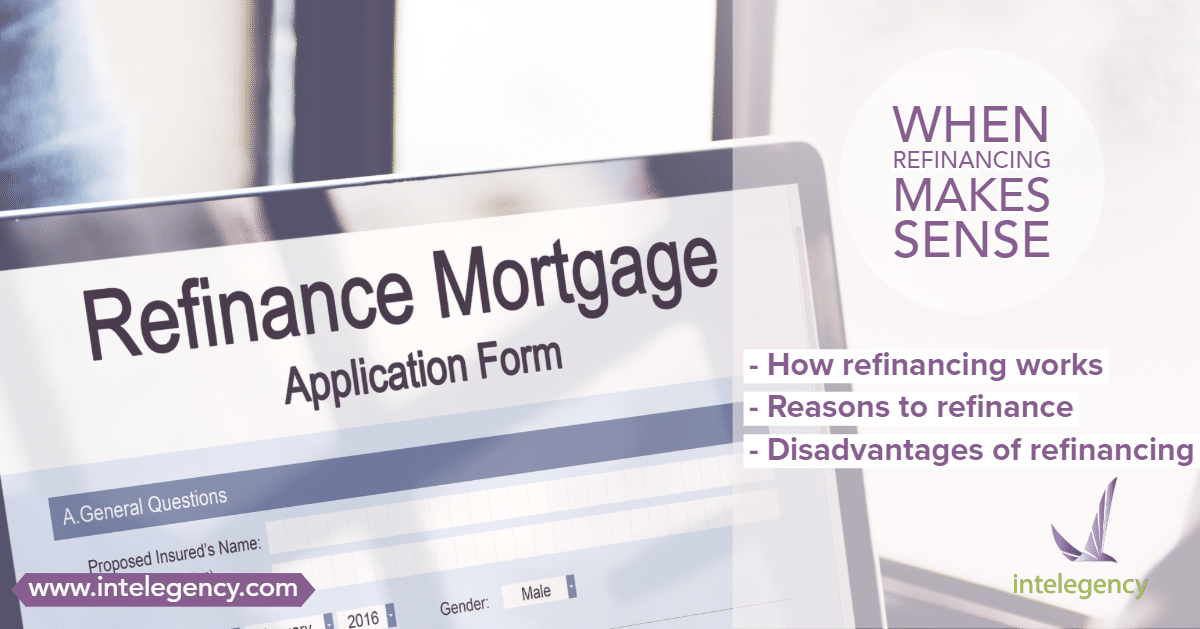
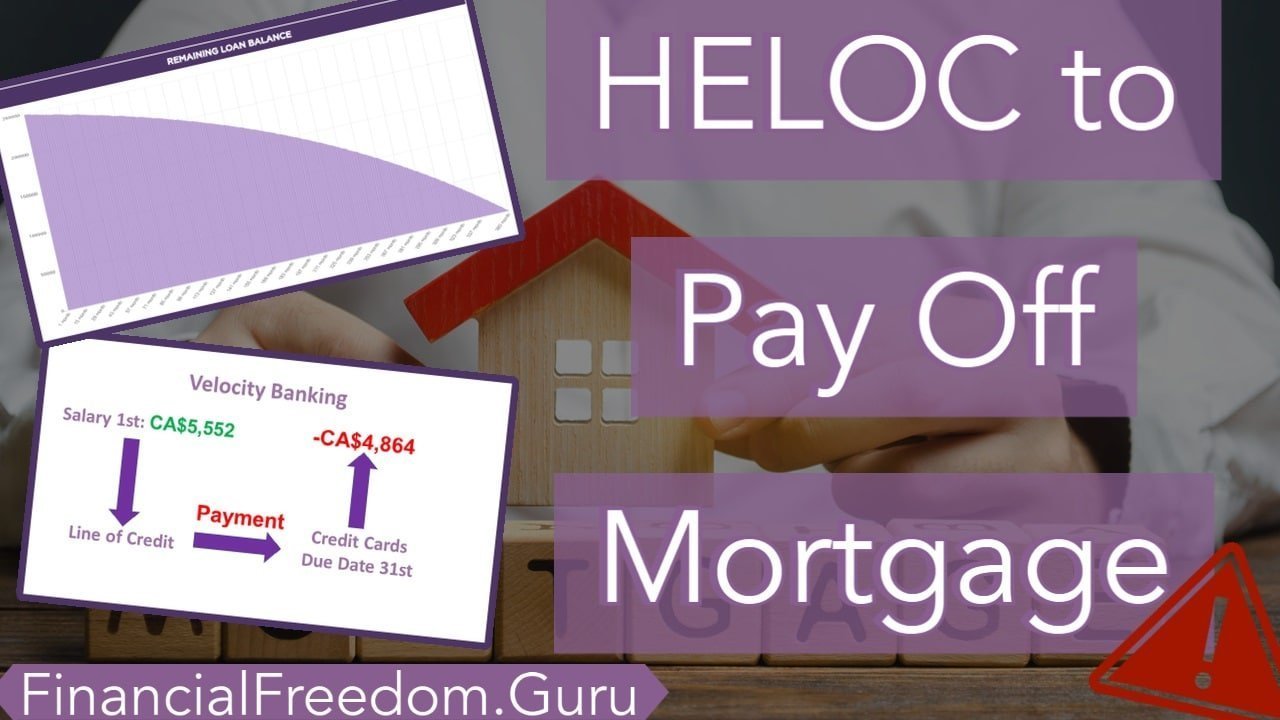

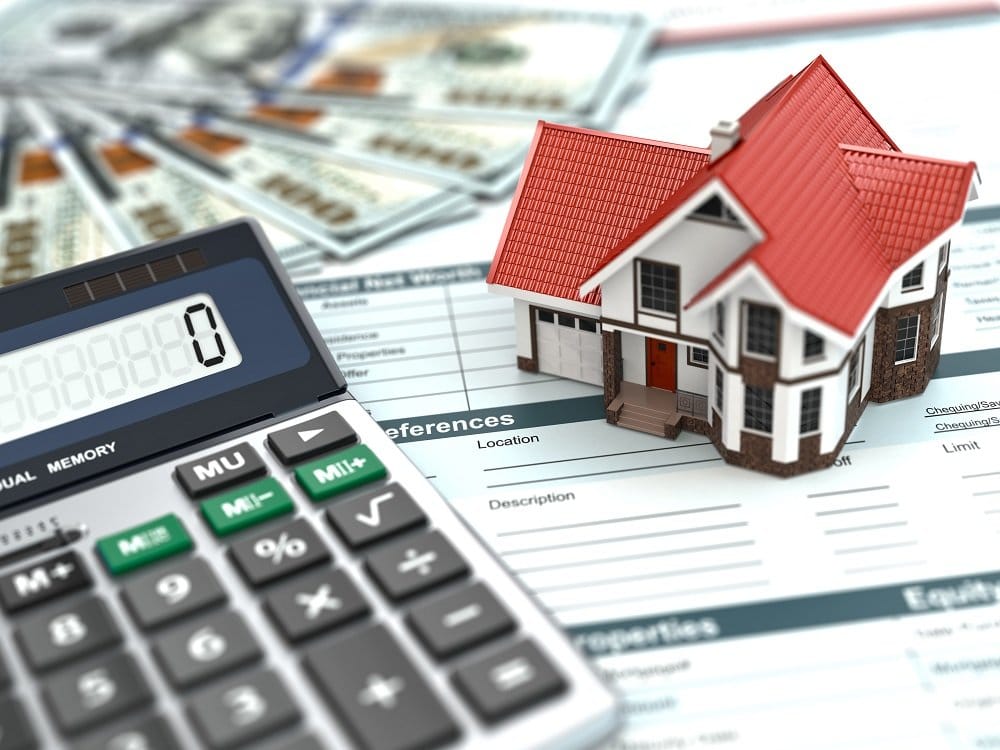
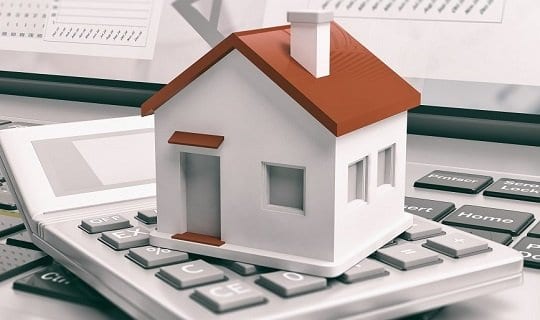
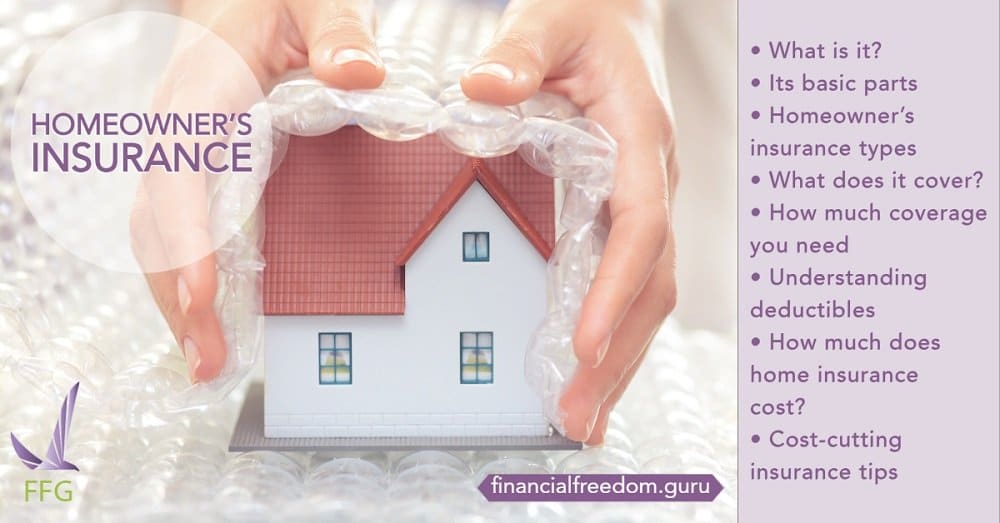
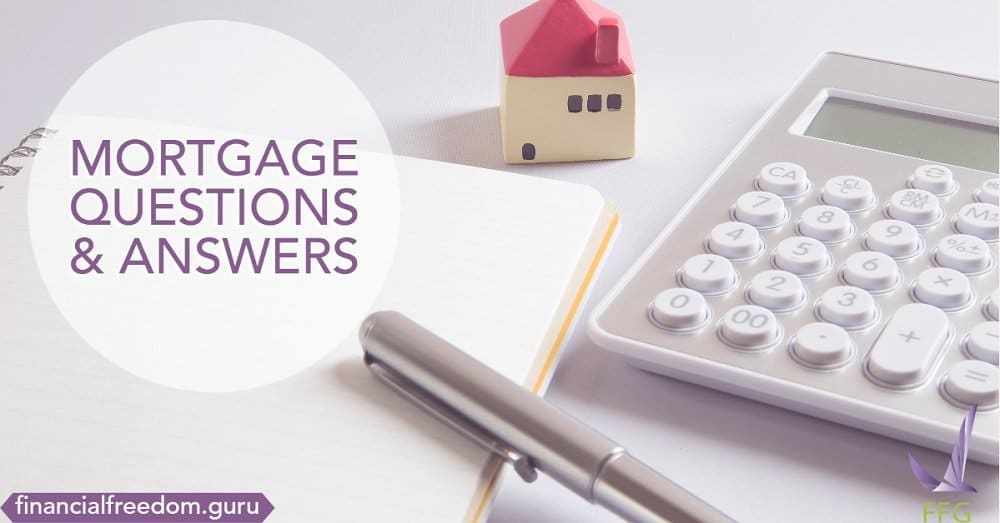
I look at some of the rental properties in my area and I’m blown away with how much they cost. This is one of the reasons why I want to buy. We’ve been in our rental home for about 5 years and when you add it up we’ve basically could have been half way through owning a home. Our landlord is great but I’d so much rather own now. Plus I’m getting old! I need a good investment!
This all depends on where you live. For example here in Toronto homes that cost $2million rent our for around $4k per month. If you do the math with renting you would have paid off such a mortgage in 70 years.
When you buy, you’re not giving your money to someone else and hoping that they’ll fix an issue if it arises. The equity is yours not theirs. No one can tell your what to do to your house unless you have a HOA. You don’t have to worry about them selling the house or evicting you On the other side. When you rent if there’s an issue such as plumbing or electrical it’s not coming out of your pocket. You’re not paying the home insurance she taxes ( although you should have renters insurance), you don’t need to find a… Read more »
I agree to rent or to buy that is a highly personal decision. Remember that you also have zoning requirements and property tax, so are never 100% free to what you want with your home or just own it forever.
Homeownership is good when your finances are straight and you have an emergency fund. Things break in a home and repairs are all on you.
So true: roof, electrical, plumbing. Let’s not forget about home insurance and property tax.
I only needed convincing once, once I figured out if I rent I’ll be paying someone else mortgage.
Yeah to rent or to own a home is a highly personal decision regardless of the math.
I’m thinking of buying a house within next year or two. I’ve already statred studying the information on what to do to be prepared. Thank you for the guide, it really helpd to learn some hints on this uneasy question
Good decision of yours. One more advice – trust your inspector above all other. Mine overlooked some major things and I just didn’t grasp how important the inspection is.
We’ve done this twice, hopefully closing on the second in a few weeks. 1- no new debt. 2- have a credit card or two but keep them below 29% usage. 3- have any subscription bills on the credit cards, but pay them every month to stay under that 29%. 4- handle any collections NOW. 5- never make late payments, ever. Meaning late payments of any of your accounts during the next 2 years. 6. Work with a trusted realtor, it IS worth it. 7. Get a very well recommended home inspector. 8. Save up at least $2,000 for the binder… Read more »
N 6 totally agree. In my personal experience – get a realtor that wants to *work* for you, not just sell a house. Mine worked hard to make sure we found a home that qualified for the 0% down payment USDA program! Other realtors didn’t want to spend the time on us though. There are other programs as well. Use them! We would still be renting if we’d saved up thousands. We are paycheck to paycheck (wish it wasn’t true, but it is) and have a family of six. Those programs are there for you to use, you just need… Read more »
Good luck with that homes prices are very high right now due to low mortgages and people bunkering up through pandemic. I would wait for a year before buying a new home
this is all new to me. I just wanna be well informed for when I finally start that process. Im also looking to purchase a home in the next year or so. Right now, trying to get my credit score up is stressing me out.
I do know banks usually look up to 2 years in to your financial past….use this site to help you with fixing your credit I wouldn’t stress out it didn’t take you 1 day to mess it up you won’t fix it in 1 day. Use the search bar there is a lot of information in here
That could be a great time to buy a home actually as right now the home prices are very high due to low supply and very low APR on mortgages. Everyone is FOMOing and trying to snatch the house.
Buying a house is a business not just an emotional thing. Dont fall in love until you know it’s a good solid house. U dont want to be house rich and cash poor. Calculate a true assessment of what you can afford . Mortgage Interest taxes and insurance should be less than 25% of your income.
And that’s definitely the hard part, I live in Maryland houses will have you fall in love and then you find out you can’t afford it, gentrification in the urban city doesn’t make it any better
This is an important point! The first home we bought 100, 000 (literally!) less than the banks approved us for. We knew better, we could not afford that. This time, we went 45,000 less than approved for. You know your budget and goals, be very realistic and don’t only go by what they approve you for.
I would even say that owning a house is a liability. Owning a house for less than 25% of your income is a solid tactic. Unfortunately in the big cities like Toronto it’s almost impossible, so you have to decide to either move out of the city or take on a lot of debt and hope that eventually the house would appreciate in value.